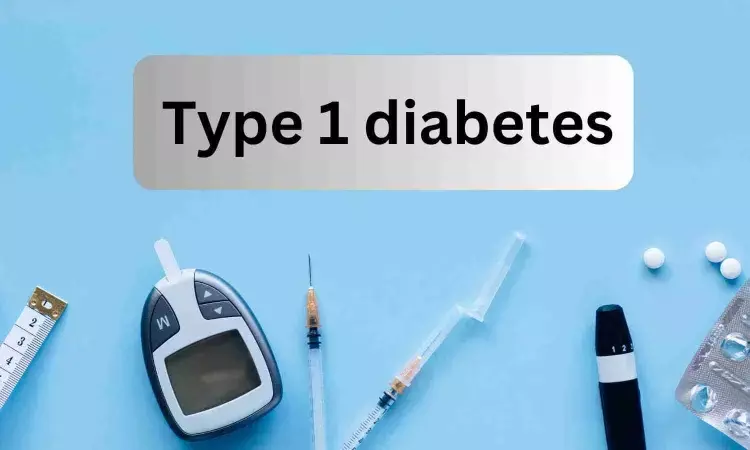- Home
- Medical news & Guidelines
- Anesthesiology
- Cardiology and CTVS
- Critical Care
- Dentistry
- Dermatology
- Diabetes and Endocrinology
- ENT
- Gastroenterology
- Medicine
- Nephrology
- Neurology
- Obstretics-Gynaecology
- Oncology
- Ophthalmology
- Orthopaedics
- Pediatrics-Neonatology
- Psychiatry
- Pulmonology
- Radiology
- Surgery
- Urology
- Laboratory Medicine
- Diet
- Nursing
- Paramedical
- Physiotherapy
- Health news
- Fact Check
- Bone Health Fact Check
- Brain Health Fact Check
- Cancer Related Fact Check
- Child Care Fact Check
- Dental and oral health fact check
- Diabetes and metabolic health fact check
- Diet and Nutrition Fact Check
- Eye and ENT Care Fact Check
- Fitness fact check
- Gut health fact check
- Heart health fact check
- Kidney health fact check
- Medical education fact check
- Men's health fact check
- Respiratory fact check
- Skin and hair care fact check
- Vaccine and Immunization fact check
- Women's health fact check
- AYUSH
- State News
- Andaman and Nicobar Islands
- Andhra Pradesh
- Arunachal Pradesh
- Assam
- Bihar
- Chandigarh
- Chattisgarh
- Dadra and Nagar Haveli
- Daman and Diu
- Delhi
- Goa
- Gujarat
- Haryana
- Himachal Pradesh
- Jammu & Kashmir
- Jharkhand
- Karnataka
- Kerala
- Ladakh
- Lakshadweep
- Madhya Pradesh
- Maharashtra
- Manipur
- Meghalaya
- Mizoram
- Nagaland
- Odisha
- Puducherry
- Punjab
- Rajasthan
- Sikkim
- Tamil Nadu
- Telangana
- Tripura
- Uttar Pradesh
- Uttrakhand
- West Bengal
- Medical Education
- Industry
Addition of protein-based insulin bolus benefits patients with type 1 diabetes? Study sheds light

New Zealand: In a groundbreaking endeavor to enhance diabetes management strategies, a randomized controlled trial has unveiled promising results for individuals with type 1 diabetes (T1D) who follow carbohydrate-restricted diets. The study investigated the efficacy of incorporating an insulin-to-protein ratio alongside the conventional insulin-to-carbohydrate ratio in managing blood glucose levels.
The study, published in the Journal of Diabetes and its Complications, showed that protein and carbohydrate-based insulin dosing doesn't improve glycemic control compared with carbohydrate-based dosing alone in people with type 1 diabetes.
"Additional bolus insulin using an insulin-to-protein ratio (IPR) did not improve glycemic control or time spent in euglycemic range (TIR) in patients with well-controlled T1D following a carbohydrate-restricted diet. IPR use does not raise hypoglycemia risk and may be preferred," the researchers wrote.
Carbohydrate-restricted diets are becoming increasingly popular for those with type 1 diabetes. Postprandial hyperglycemia can be problematic for T1D patients following carbohydrate-restricted diets. Bolus insulin calculated for meal protein plus carbohydrate may help. Rosemary M. Hall, Department of Medicine, University of Otago Wellington, Wellington, New Zealand, and colleagues evaluated the effect of additional bolus insulin using an insulin-to-protein ratio on glycemic control.
The study included participants with type 1 diabetes aged ≥ 18 years. They were randomly allocated in a 1:1 ratio to either carbohydrate and protein-based, or carbohydrate-based insulin dosing alone for 12 weeks while following a carbohydrate-restricted diet (50-100 g/day).
HbA1c measurement and continuous glucose monitoring occurred at baseline and 12 weeks, with an assessment of participant experience at 12 weeks.
The following were the key findings of the study:
- Thirty-four participants were randomized, 22 female, mean: age 39.2 years; diabetes duration 20.6 years; HbA1c 7.3 %, 56.7 mmol/mol.
- Seven in each group used insulin pump therapy. HbA1c reduced at 12 weeks with no difference between treatments: mean control 7.2 %, 55.7 mmol/mol; intervention 6.9 %, 52.3 mmol/mol.
- Using additional protein-based insulin dosing compared with carbohydrate alone, there was no difference in glycaemic variability, time spent in the euglycemic range, or below range.
- Participants using IPR reported more control of their diabetes but varying levels of distress.
"Investigating the IPR use in addition to an insulin-to-carbohydrate ratio (ICR) in people with higher baseline A1c would be of great interest, and in this study, a higher A1c inclusion would have been preferable. The difference observed in glycemic variability using an additional IPR indicates a potential clinical benefit," the authors wrote.
"Further work could look at using this IPR in those who may be struggling to achieve tight glycemic control with multiple daily injections and do not want to adopt a hybrid closed-loop insulin pump," they concluded.
Reference:
Hall, R. M., Marshall, H. J., Parry-Strong, A., Corley, B., & Krebs, J. D. (2024). A randomised controlled trial of additional bolus insulin using an insulin-to-protein ratio compared with insulin-to-carbohdrate ratio alone in people with type 1 diabetes following a carbohydrate-restricted diet. Journal of Diabetes and its Complications, 38(7), 108778. https://doi.org/10.1016/j.jdiacomp.2024.108778
Dr Kamal Kant Kohli-MBBS, DTCD- a chest specialist with more than 30 years of practice and a flair for writing clinical articles, Dr Kamal Kant Kohli joined Medical Dialogues as a Chief Editor of Medical News. Besides writing articles, as an editor, he proofreads and verifies all the medical content published on Medical Dialogues including those coming from journals, studies,medical conferences,guidelines etc. Email: drkohli@medicaldialogues.in. Contact no. 011-43720751


